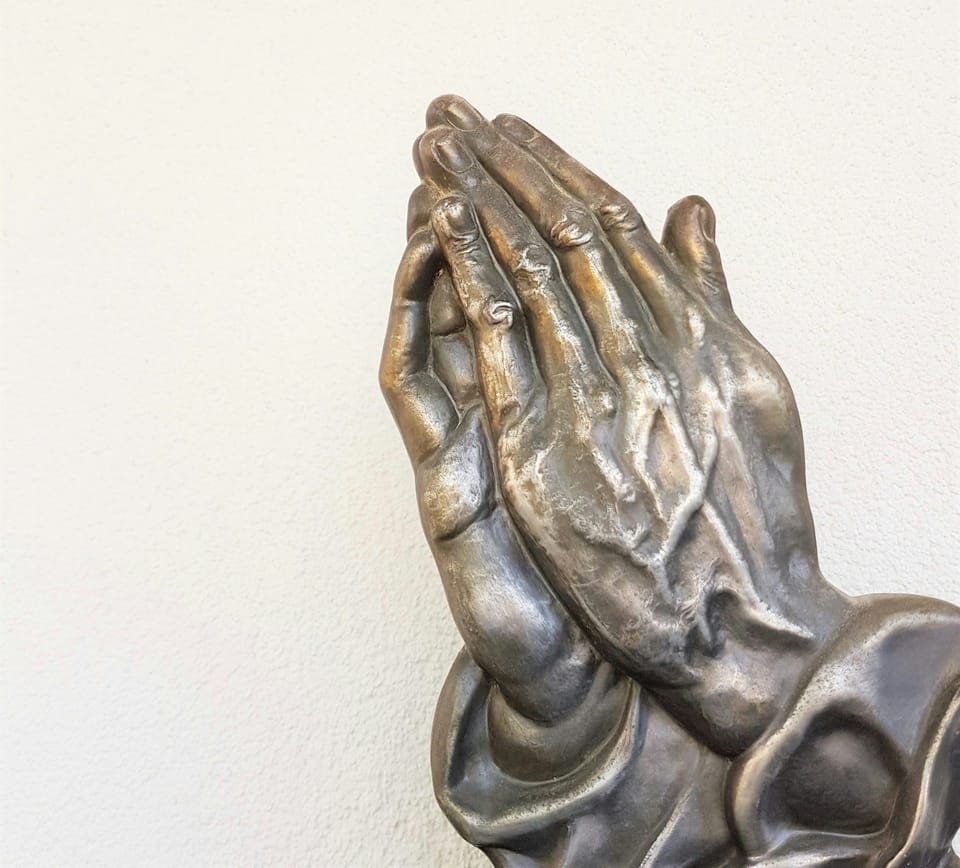Virtue VI - Gratitude

Most human beings who have ever existed would consider their prayers answered to trade places with you. Paradoxically, these very people likely live/have lived far happier lives than the average modern human. Despite the fact that we live in the most prosperous civilization in the history of mankind, we find ways for our "first world problems" to curtail our happiness, while others have live/have lived in tranquility amidst considerable deprivation.
Evidently, happiness can't be a matter of what one has or doesn't have, but rather a product of one's outlook/perspective. The focus of this blog is to underscore how the virtue of gratitude is a crucial component of a mindset that is conducive to a life well lived.
"It's not the man who has too little, but the man who craves more, that is poor." - Seneca
"The wealthy man does not grieve for the things which he has not, but rejoices for those which he has." - Epictetus
Those who struggle to make ends meet on a daily basis might read these quotes and roll their eyes. How could I not want more when I can barely feed my family? To feel distain toward gratitude during hard times is understandable, but misses the point. It's not about being resigned; passively accepting lowly circumstances. It's about appreciating what one has, while striving for improvement. The goal is to separate our happiness from our possessions. Beyond meeting our basic survival needs, our wellbeing should not suffer based on the difference between what we have and what we want.
The following quote by Marcus Aurelius articulates this point well.
"Treat what you don’t have as nonexistent. Look at what you have, the things you value most, and think of how much you’d desire them if you didn’t have them. But be careful. Don’t feel such satisfaction that you start to overvalue them—that it would upset you to lose them."
This passage encapsulates a core Stoic principle: appreciating and valuing what you have without becoming overly attached to it, maintaining a balance between gratitude and detachment.
We're grateful for what we have, but our happiness isn't contingent upon it. This is especially important when one does start to realize monetary / material success. It's a useful antidote for lifestyle inflation and the hedonic treadmill.
Far more valuable than possessions is freedom. I would much rather drive a ford focus and have time to spend doing things I love with people I love than drive a Ferrari and spend eighty hours a week in a high rise.
That said, gratitude isn't an excuse for complacency. It's about balancing ambition and desire to improve with gratitude for what we have now.
Incorporating Gratitude
In American tradition, gratitude is only brought to light once a year on thanksgiving, followed by engorgement and entertainment. Gratitude ought to be practiced daily.
Journaling
If you don't journal already, a great place to start is by reflecting on one person or thing you are grateful each morning. Doing so sets a precedent that opens your mind to find other things you are grateful for as you go about the rest of your day.
Negative Visualization
If you struggle to come up with things to be grateful for, pick someone or something and imagine what life would be like without it/them. For instance salt and spices used to be such highly prized commodities that only the upper class had access to them. Try going one day without either. Plain chicken breast and potatoes aren't so palatable when they aren't lathered in seasonings. Doing so will help you savor the humble salt and pepper on your kitchen table, not to mention the kiss you give your spouse on the way out the door.
Silver Linings
There are times when circumstances deprive us of things against our will. In such situations, where we have no control over what has happened, the quality of our minds, the only thing we ever have complete control over, determines the quality of our experience. We can lament such inconveniences, amplifying own suffering, or we can use them as opportunities to exercise gratitude. For example, sustaining an injury makes one yearn for the restoration of pain free functionality of the injured body part which we habitually take for granted. Power outages make us grateful for light, heat, AC, and digital devices.
Last Time Meditation
You have a finite number of encounters with every person and experience. Each time you do something or interact with someone is one step closer to the last time you ever will. Take a moment to recall something that you will never do again, like the carefree bliss of being a child, or your last college sporting event. There is a ubiquitous feeling of nostalgia associated with "the good old days." Whatever you happen to spend time doing, there is a chance you will miss it, even the things you don't exactly look forward to. The next time you go to do something, or spend time with someone, consider the possibility that it may be the last time, and notice how it has the effect connecting you to the experience more deeply.
Memento Mori
Bringing to mind the fact that you, and everyone you know, are going to die, is a very direct way of galvanizing gratitude. Keeping death in mind amplifies the intensity of the negative visualization and last time meditation. Considering the fact that when others die, you will never be able see them again, and when you die, will never be able to experience anything again, adds a poignancy to life that is otherwise inaccessible. Even before death sweeps us away, old age brings with it the end of many things we are no longer capable of. Youth and vitality are things we all lose, but often get taken for granted until they're gone.